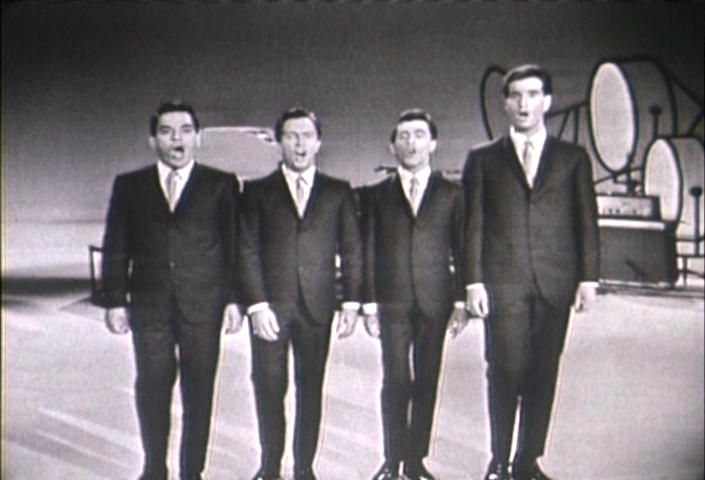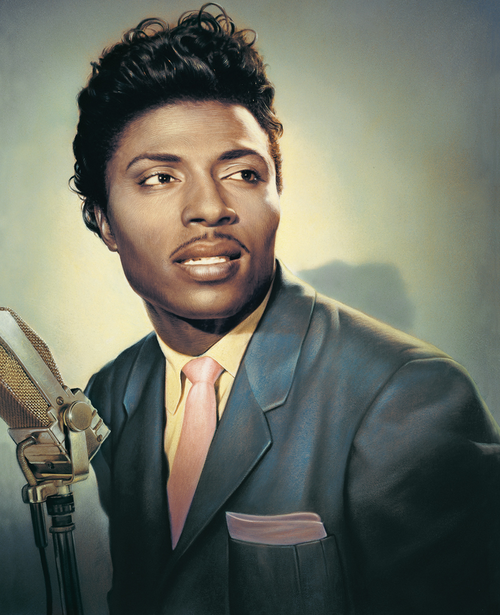Reading Reed
Maybe I should just do a weekly post on Rex Reed, because he's bananas. Each time I read his column I'm astonished anew. Take his latest on Jersey Boys. The first paragraph:
Jazz aficionado Clint Eastwood hates the bubblegum pop-rock noise of all those ’50s groups like The Four Seasons as much as I do. And there is nothing fresh, special or intriguing about the story of their rise and fall that distinguishes it from all of the other jukebox musicals that pollute the ozone in retro agony. So why did I enjoy Jersey Boys, the Broadway show about them that is still running after nine years, and why do I like the movie even more? I think it’s because, despite all that crummy doo-wop, it’s a universal, American “anyone can make it” success story that has uplifting appeal onstage, and in Mr. Eastwood’s capable hands, the joy spreads like apple butter.
1) Eastwood hates their music? Maybe Rex knows this personally (and I can actually believe it, since the movie doesn't seem to understand the passion behind the music, though I generally find passion missing from much of Eastwood's work), but if this is so, why would anyone give Eastwood the assignment? And why would he take it?
2) They started in the 50s, but are a 60s group, recording their big hits in that decade.
3) There's nothing fresh, special or intriguing about their story distinguishing them from other jukebox musicals? I would think a major reason Jersey Boys has become one of the biggest jukebox musicals of all time is precisely because, in addition to the tunes, it's got a compelling story, different from others.
4) So Rex hates the music and the story. Yet likes the movie. A neat trick.
5) Why does he like it? Because it's got an "anyone can make it" appeal. The music is unique, the story is unique, but it's the huge cliché at the center that draws Rex in.
6) Rex says the joy spreads like apple butter. (Why apple butter? Does that spread better than regular butter? And don't get me started on "pollute the ozone in retro agony.") Funny that most critics don't find the movie so joyful, and almost none think it better than the stage version. When was the last time anyone accused Clint Eastwood of spreading joy, anyway? One of the main complaints, in fact, is he's turned the story into a downer.
And that's just the first paragraph. Reed's plot summary, as always, is filled with errors*. I'll ignore them, except for one he went out of his way to make:
That screeching soprano kept [Frankie Valli] out of jail, paid his bills, propelled him to stardom and influenced myriad pop imitators, from Little Richard to Little Anthony and the Imperials.
I assume my readers already know the error, but just in case, let me note that Little Richard and Little Anthony were stars in the 50s, before anyone had heard of the Four Seasons. Now Lou Christie, that's another story.
*In The New Yorker, the usually reliable Anthony Lane makes what I think is a mistake:
We get the guys clustered around a phone, pouring the start of “Sherry” into the ear of Bob Crewe (Mike Doyle), their producer, who informs them that, by chance, he has tapes set up to record...
I seem to recall the guys were unhappy that songwriter and member Bob Gaudio was late because they were about to go to a recording session. Much harder to buy is when he comes in with some lead sheets and they can immediately start singing the song, and then Bob Crewe over the phone can hear the first few a capella bars and knows it'll be a huge hit with a new sound.





2 Comments:
Rex's logo ought to be fish swimming in a barrel in a gun shop(or a Texas fast food restaurant)
Does the story finish with Frankie (as Rusty?) appearing as NYC mobster Rusty getting his head blown off by Russians in the last season of the Sopranos. I will take that acting performance as recompense for having to hear "My Eyes Adored You" on a seemingly endless loop during junior high. (Oh What A Night wasn't so bad because that seemed about happy sex which appealed mightily to a mid 70s horny tweener)
The chronology of the film is fumbled. It starts in 1951 and we're never really given a feeling for the time, as things just sort of happen and after a long while they're recording and, if you didn't know it were the 60s, you might think it's 1953. Maybe that's where Reed went wrong.
Things skip along and you never know when it is, exactly, and we get to hear "My Eyes Adored You" backing some of the action at a time in the movie long before it was recorded. Later there's a long skip to the band performing at the Rock And Roll Hall Of Fame years after splitting up. It's there Frankie tells us the best time was standing under the streetlamp in the old days, making music. A fine remembrance, except Clint has not shown us this moment. So he recreates a memory we don't have and follows it up with a rousing number (really the first in the movie) where every character joins in, followed by the credits where we here the actual Four Seasons, who are much better than the imitation.
No Sopranos, though Frankie Valli was a lot more manly in that than John Lloyd Young was in this. But then, the Sopranos was a chance for Jersey Boy rock stars to bring out their tough side.
Post a Comment
<< Home